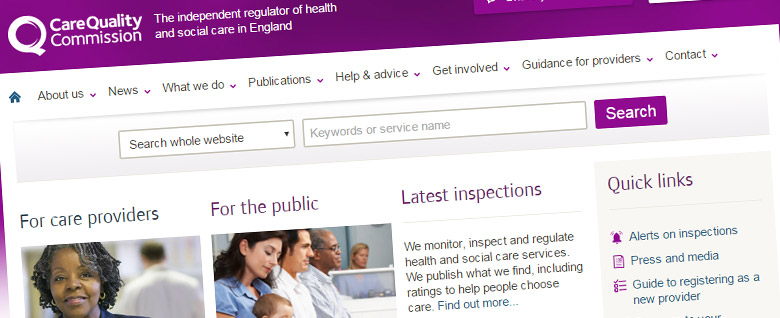The Care Quality Commission Regulations 2009 set out the instances where you must notify the CQC of a specific incident, event or changes to the service that will affect the users. Examples of situations that warrant a notification include the death of a service user, serious injury to a service user, allegations of abuse and applications to deprive a person of their liberty. Please seek appropriate advice if you are unsure as to whether or not you should be notifying the CQC.
It is important to note that it is an offence where you fail to notify the CQC of a notifiable incident. This could result in prosecution or other serious sanctions including, but not limited to, the closure of the service.
How do I notify the CQC?
There are a number of tools available to the service provider in order to facilitate the notification process. Mainly, you can submit a notification via the online portal which is the quickest and easiest way. Alternatively, you can use the forms provided on the CQC website and send this to them. However, it is essential that you bear in mind the strict timescales which must be met.
Notifications where a service user is detained or likely to be detained under the Mental Health Act follow a separate process, which we can advise upon where necessary.
Who must complete the notification?
It is listed as being an activity to be carried out by a registered person, often the Registered Manager, but you are able to delegate this to another member of staff. If you do decide to delegate, it is important that the delegation procedures are adequately documented and that it is clear who is responsible for submitting the notification. This is something which should be taken seriously as the registered person will remain responsible for notification. There is space within the form to detail who is making the notification and who to contact in the event that further information is needed.
Important issues when making a notification to avoid a breach of regulations
- You should use separate ID codes to represent each service user so that they are not identifiable in the notification. The information relating to these codes must be kept securely.
- Always quote the reference number assigned to a notification hen contacting the CQC to discuss an issue further or provide additional information.
- There is no requirement to notify the CQC about medicines errors.
- Notifications concerning changes to your statement of purpose must be made within 28 days.
- Notifications concerning changes to your registered details must be made as soon as possible and ideally ahead of the changes being made.
CQC - powers in prosecution
The CQC are often underestimated in respect of the powers that they have to prosecute providers and individuals, which do extend to criminal powers of prosecution. These include the following:
Simple cautions
A caution, if accepted, will provide an official record of a person having committed an offence and admitted to it but not having been subject to prosecution. Where the caution is not accepted, prosecution will be likely.
Penalty notices
Can be used where a prosecution is an option, but not necessarily efficient or where the impact on service users is insubstantial.
Prosecution
Even where the prosecution criteria is made out the CQC may substitute a prosecution for a Warning Notice, where the CQC proceed to prosecute, the court will decide on what sanction is to be imposed, which can include a term of imprisonment (if being prosecuted as an individual).
In the event that you are unsure about your position or find yourself facing regulatory action, it is essential that you seek professional assistance as soon as possible. This will significantly increase your chances of obtaining the most favourable outcome and potentially maintaining your registration. If you do require assistance in dealing with issues you may have with the CQC including responses to Notices, factual inaccuracies and ratings reviews, our dedicated team are hand to assist you.
By regulatory defence specialist, James Ford



Comments